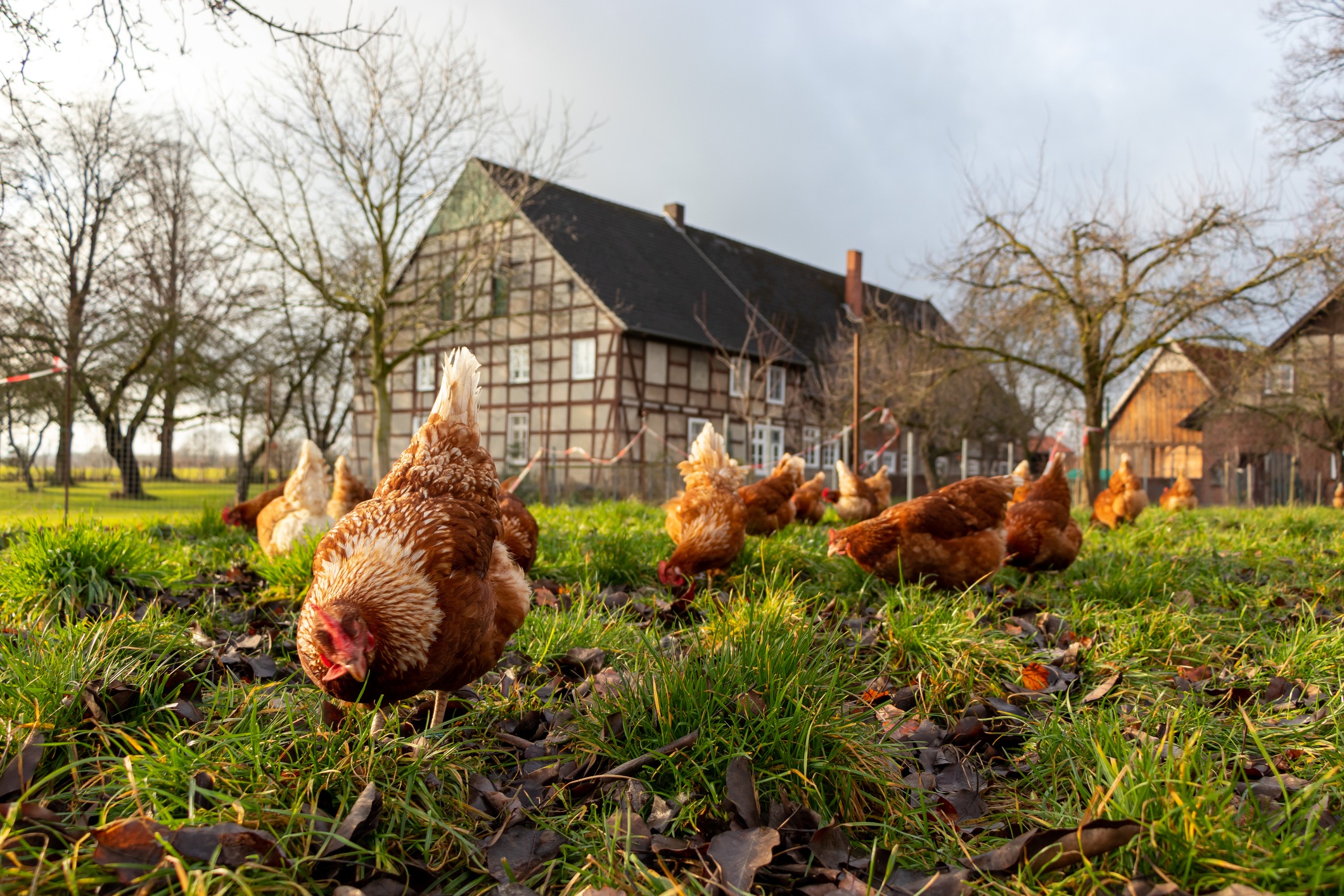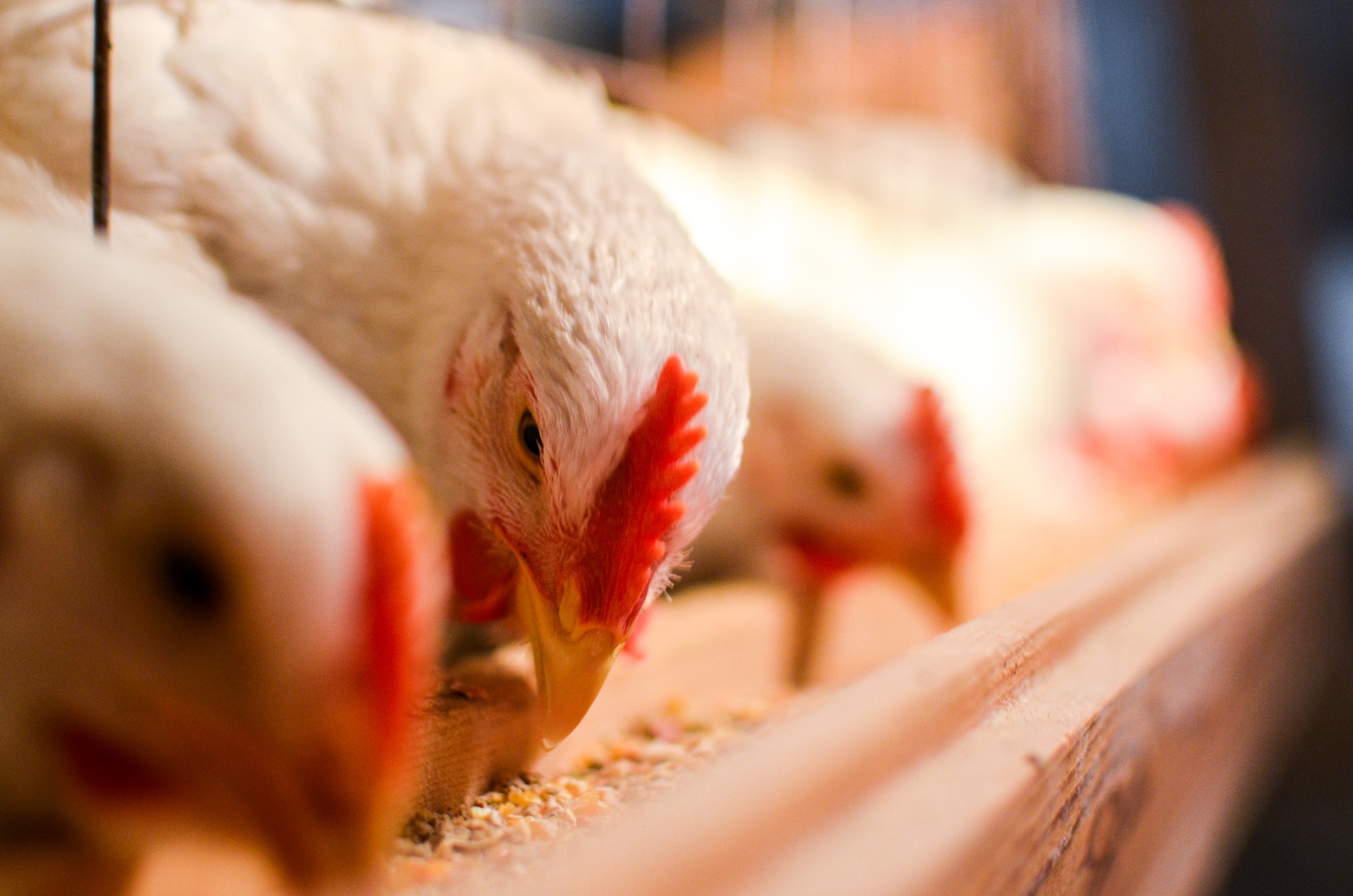Taking care of chickens in your own backyard has its share of ups and downs. On one side, you get fresh eggs and meat, but on the other hand, it takes a huge responsibility, and you get to face many challenges. Raising chickens includes additional costs, maintenance work, veterinarian visits, cleaning tasks, and more. For backyard farmers, getting rewards for their efforts makes it worth it.
However, this isn’t always the case since you may experience plenty of drawbacks along the way. If you’re thinking of raising chickens, you have to consider the challenges and typical problems chicken farmers face so that you know what you may face.
You need substantial capital to get started
Getting started with raising chickens requires a significant amount of money. You’ll need capital to cover various expenses, such as building poultry structures (mainly the coop), purchasing chicks, hiring assistance, and obtaining necessary documents for your farm.
Additionally, there are additional costs to consider before you even sell your first bird or chicken products. The good news is that you can begin with a small family operation and gradually expand if you’re patient.
Even raising chickens in your backyard comes with expenses. Each bird can cost between $3 and $30. A suitable coop for them can range from $500 to $1000, depending on the number of birds and additional features you want. Moreover, you’ll spend around $15 on feed every month for a small group of 3 to 6 birds.
Chickens can be noisy
Chickens can make quite a racket, although they’re not as loud as ducks. They spend their day chirping, clucking, and squawking, which might bother both you and your neighbors. There are several reasons why they make noise.
One instance is that when they’re hungry, they cluck more during feeding time, which can be disruptive if you’re trying to sleep. Roosters crow to wake everyone up, and hens keep chirping and crowing if they sense a predator nearby. They also squawk when they’re molting or about to lay an egg. To keep their noise levels down, make sure your chickens have a safe, secure, and draft-free area. Regularly feeding them and providing proper care can also help reduce excessive noise.
They may not use the coop for laying their eggs
Sometimes, even if you provide your hens with a fantastic and cozy coop, they might have different plans for laying their eggs. If your chickens have the freedom to roam outside, they may find their own preferred spots for roosting and nesting. Trees are particularly appealing for roosting, and they might choose to make nests and lay eggs under a thorny bush or inside a hollow tree. Once a chicken finds a spot it likes, convincing them otherwise is quite challenging.
If they decide to roost in trees, it’s crucial to ensure they return to the coop at night, even if you have to climb the tree yourself. Nighttime predators like owls and raccoons can be a real threat. If your chickens insist on roosting or laying eggs in places other than their designated coop and nest box, it’s likely something you’ll have to accept and live with.
Chickens smell bad
Chickens can have a strong smell that most people find unpleasant. The odor becomes more noticeable when they’re molting, laying eggs, or if they haven’t been fed for a while. To minimize the smell, make sure to feed your chickens regularly and create a suitable environment inside their coop. Both baby chicks and adult chickens produce waste that contains nitrogen, urea, and uric acid, contributing to the odor.
Cleaning the coop on a weekly basis helps reduce this. Adding fresh compost daily or using a roosting box outside the coop can also help manage the smell. Additionally, placing some soil inside the coop can help reduce the strong odor in your backyard.
Chickens create a lot of mess
Chickens can create quite a mess in addition to their strong odor. It’s important to remember that if they’re left outside, they may uproot flowers, eat plants, or damage the flooring of their enclosure. Inside the pens, their droppings can contaminate the water and food you provide.
Also, when it rains, the waste in the backyard becomes slippery and can make the surroundings muddy. Cleaning up such a big mess can be overwhelming and expensive. However, there are several solutions to minimize the mess in the chicken enclosure.
Firstly, use a shovel or a rake to remove the droppings from your backyard. Collect them in a bag and dispose of them properly. The same goes for unwanted feathers around the pens. Finally, consider building a fence or using physical barriers to prevent chickens from accessing areas where they can create more mess.
Molting causes new problems
Hens typically molt around one year of age and may go through another molt in the fall. This can cause shedding of feathers and reduction in eggs.
During molting, you’ll notice new feathers growing in to replace the ones that were shed. However, feather loss can occur for other reasons, too, such as nutritional issues or irritation from mites or lice. Growing broiler chicks may also have patches of bare skin as they gain weight faster than their feathers can keep up. If feather loss is a result of pecking by other chickens, reducing the intensity of light in the coop can help alleviate the issue.
Chickens can kill grass
Chickens have a tendency to eat grass, which can be problematic for gardeners and owners. They also peck at the seeds of vegetables planted in the backyard. To address this, you can provide them with their own green leafy vegetables, corn, oats, and barley.
If you have growing greens in your backyard, consider using a chicken wire fence to separate them. While it’s not an easy task, you can either fence off the plants or offer alternative plants for the chickens to eat.
When the chickens are out scavenging, there are a few ways to prevent them from getting close to the grass. Shooing them away may work temporarily, but it can be tiring. It’s recommended to plant thorny plants like dandelions, thistles, or daffodils around the perimeter of your backyard. These natural barriers will keep the chickens away. Additionally, you can use boxes or wooden posts to keep them out of specific sections you want to protect. This strategy not only safeguards your plants but also keeps the chickens in check.
Chickens like to eat much
Chickens have hearty appetites, and feeding them a nutritious diet can be costly. It’s essential to ensure they have an adequate supply of food and water. The amount they eat depends on factors like their breed, age, and activity level.
Consulting a specialist or following feeding guidelines can help you determine the right amount of food for your chickens each day, especially if you’re on a tight budget and can’t afford supplements. It’s unnecessary to provide excessive amounts of food, as it will only fill their stomachs without being fully utilized.
Overfeeding can lead to problems such as obesity, so it’s important to track their daily food intake. Consider having a designated storage space for food to ensure you have enough for future use. If your chickens have their own yard, they can get exercise, which helps prevent obesity. The more active they are, the more they’ll eat.
For free-range chickens, a balanced diet can include fresh grass or vegetables. Another cost-saving option is to feed them leftovers from your own meals. Uncooked rice, peas, and noodles can be a cheaper alternative to commercial feed, but remember to soak them in water for a few hours to enhance nutrient absorption.
Running out of food or having no leftovers can pose a dilemma. It’s important to consider the purpose of keeping chickens in the first place. If they’re kept as pets, providing them with commercial feed at least three times a day is advisable.
Ultimately, it’s your responsibility to ensure your chickens are well-fed. Remember that they are primarily herbivorous birds, so fresh vegetables and fruits should be included in their diet. Chickens also enjoy eating bugs, snails, worms, and insects, which you can collect from your backyard. However, make sure they are free from pesticides to avoid potential problems.
Chickens are susceptible to diseases
Keeping backyard chicken flocks and other poultry comes with the risk of diseases such as coccidiosis, avian influenza, Marek’s disease, Newcastle disease, infectious bronchitis, and pox. If you notice signs of illness in your chickens, it’s crucial to reach out to your veterinarian for proper treatment.
Fortunately, there are various medications available to treat diseased chickens. These medications are typically administered through water or feed, making it convenient for you to provide the necessary treatment. Your veterinarian will guide you on the recommended course of action to address the specific disease affecting your chickens.
Also, they can get infections from rodents and wild birds that come near the coop. There are also bacteria that can be transferred to chickens if you handle them without washing up or wearing gloves.
When one of your chickens is sick, the best thing to do is to separate them from the healthy ones to avoid contamination.
Chickens are prone to picking up parasitic worms
Worms are a common issue among backyard chicken flocks, and when present in large numbers, they can negatively impact growth, egg production, and overall health. Chickens can pick up parasite eggs by consuming contaminated feed, water, or litter or eating snails, earthworms, or other insects carrying the eggs. Common types of worms include large roundworms, cecal worms, small roundworms, and tapeworms.
To prevent infestations, provide a proper diet rich in vitamins A and B complex, as this supports the chickens’ immune system. Keeping the chickens’ area clean and sanitary is also crucial. Avoid overcrowding, use insecticides to control insects, and minimize contact with wild birds, as they can be a source of worm eggs.
Chickens can get aggressive
Chickens have the potential to become aggressive, which can be a challenging problem to deal with. The reasons behind their aggression can vary among individual birds. Some breeds may naturally exhibit more aggressive behavior, while others can be trained to be more docile from a young age. As chickens mature, their aggression may increase, especially if they feel threatened or scared.
It’s crucial to tame your chickens early on and promote a sense of calmness within your flock. Having a group of chickens that create chaos whenever they feel like it isn’t ideal for backyard living. So, you need to be aware of signs of aggression to identify when they feel threatened or frightened.
In cases where a chicken consistently harms others or poses a danger to young children, it may be necessary to separate that individual from the rest of the flock. Ensuring the safety and well-being of your chickens and those around them is paramount.
Chickens may lay fewer eggs
If you’re raising chickens for their eggs, expect seasons when they start laying fewer eggs or stop laying altogether. There are several common reasons for this, such as decreasing daylight hours, inadequate nutrition, disease, aging (around 2 or 3 years), and stress. This decrease in egg production can stress out a chicken farmer.
Hens need around 14 hours of light per day to support egg production, so consider providing artificial light as the days get shorter. Ensure they have a constant supply of fresh water and feed them with layer food containing 16% to 18% protein, avoiding whole grains and scraps. Additionally, offering oyster shells can be beneficial. If you suspect disease, consult a veterinarian, and keep new birds separate from the rest of the flock. To minimize stress, try to avoid moving or handling the hens excessively, limit frightful situations, and maintain consistent environmental conditions.
Chickens may eat their eggs
If there are broken eggs in the coop, there’s a higher chance that a hen will start eating them. Once laying hens develop a taste for eggs, breaking this habit can be challenging, if not impossible. That’s why managing your flock in a way that prevents hens from experiencing the deliciousness of their own eggs is crucial.
To prevent egg-eating behavior, you must avoid excessive traffic in the nesting area and provide clean, dry nesting materials to discourage this behavior. Also, remove broody hens from the nesting area. Minimize stress by keeping bright lights away from the coop, especially near the nesting area, and avoid sudden movements or scaring hens out of their nesting boxes.
It’s also beneficial to collect eggs early and frequently. If you do encounter an egg eater, it may be necessary to remove her from the flock before other hens learn the behavior.
Chickens may not thrive in specific conditions
Certain chicken breeds may not thrive in specific environmental conditions, which can pose challenges for aspiring chicken farmers. Climate plays a significant role in determining the success of your poultry venture. Different breeds have different temperature preferences, with some excelling in cold climates while others thrive in warmer ones.
If you overlook this factor, you may encounter health issues in your flock when the weather becomes too hot or too cold. Before starting your poultry farm, it’s crucial to consider the climate of your chosen location and the specific requirements of the chicken breeds you intend to raise. Some breeds are resilient and can adapt well to various environments with minimal intervention, requiring only adequate food and water. Ultimately, the success of your chicken farming endeavors hinges on the ability of your birds to adapt effectively to their surroundings.
Chickens have a knack for flying over fences
Chickens can be quite resourceful when it comes to finding more space to roam. If their coop is small, they may attempt to fly over fences in search of extra room. It’s essential to include a run or consider using an electronic fence to prevent escapees. An electric fence can be installed around their enclosure, providing added protection against predators.
Keep in mind that chickens may try to flee if they feel threatened or hungry. Ensuring they are well-fed and minimizing potential dangers can help discourage their escape attempts. If you have dogs or other predators in your backyard, make sure to keep the coop securely closed to keep your chickens safe.
Conclusion
Keeping backyard chickens requires careful attention to various factors to ensure they are healthy and productive. Raising chickens will add a lot of to-do tasks for your day, and sometimes, things don’t turn out the way you planned. But don’t let the challenges discourage you – remember, the joy of having fresh eggs, connecting with nature, and embracing sustainable living makes the effort worthwhile.



